|
Books Should Be Free Loyal Books Free Public Domain Audiobooks & eBook Downloads |
|
|
Books Should Be Free Loyal Books Free Public Domain Audiobooks & eBook Downloads |
|
Satires |
|---|
|
Book type:
Sort by:
View by:
|
By: Arnold Bennett (1867-1931) | |
|---|---|
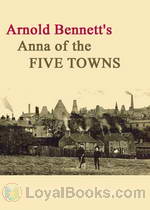 Anna of the Five Towns
Anna of the Five Towns
The plot centers on Anna Tellwright, daughter of a wealthy but miserly and dictatorial father, living in the Potteries area of Staffordshire, England. Her activities are strictly controlled by the Methodist church. Having escaped her father by marrying the respectable and attractive Henry, she attempts in vain to help Willy, son of a drunken and bankrupt business associate of her father's. | |
 Self and Self-management: Essays about Existing
Self and Self-management: Essays about Existing
Bennett's essays always provide food for thought and bring a wry smile to the lips. Human nature, it appears, changes little over the ages, and Bennett's writing stands the test of time, though in the case of some of the essays in this eclectic collection, it is well to remember that they were written at the time of the First World War and the fight for women's suffrage. | |
By: Arthur Adams (1872-1936) | |
|---|---|
 Mrs. Pretty and The Premier
Mrs. Pretty and The Premier
The Premier has decided that being married would be good for his image. He asks his stenographer for advice: Good. Just jot me down a precis of the points made by your fifteen admirers when proposing - the points that specially appealed to you. I'm afraid, sir, that what most appealed to me could not be expressed in words. In fact, it wasn't words. But no, sir. The subject is too sacred.... ...But you could tell me how they began. The opening address, eh? How did they lead up? Most of 'em just kissed me, sir... | |
By: Arthur Wing Pinero (1855-1934) | |
|---|---|
 Weaker Sex
Weaker Sex
Mrs. Boyle-Chewton and her cause - the Advancement of Women from the Rear to the Van. Lady Vivash, new recruit to the cause. Their daughters Sylvia and Rhoda. Mr. Bargus, Member of Parliament for the Skipping-Molton Division of Cuddleford, who is about to declare his adherence to the cause. Ira Lee, The Poet of The Prairies from West of the Colorado Mountains. New loves. Lost loves. Lords, Ladies, Honorables. Extravagant hopeless passions... - Summary by ToddHW Cast list: Ira Lee: Tomas Peter Lady Vivash: Sonia Sylvia : Jenn Broda Dudley Silchester: Adrian Stephens Mrs... | |
By: August Strindberg (1849-1912) | |
|---|---|
 The Red Room
The Red Room
A young idealistic civil servant, Arvid Falk, leaves the drudgery of bureaucracy to become a journalist and author. As he explores various social activities — politics, publishing, theatre, philanthropy, and business — he finds more hypocrisy and corruption than he thought possible. He takes refuge with a group of "bohemians", who meet in a red dining room in Berns Salonger to discuss these matters. (Introduction adopted from Wikipedia) | |
By: Baron Ludvig Holberg (1684-1754) | |
|---|---|
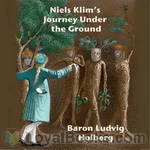 Niels Klim's Journey Under the Ground
Niels Klim's Journey Under the Ground
Niels Klim’s Underground Travels, originally published in Latin as “Nicolai Klimii Iter Subterraneum” (1741) is a satirical science-fiction/fantasy novel written by Ludvig Holberg, a Norwegian-Danish dramatist, historian, and essayist, born in Bergen, Norway. It was his first and only novel. It describes a utopian society from an outsider’s point of view, and often pokes fun at diverse cultural and social topics such as moral, science, sexual equality, religion, governments, and philosophy. | |
By: Ben Jonson (1572-1637) | |
|---|---|
 The Alchemist
The Alchemist
An outbreak of plague in London forces a gentleman, Lovewit, to flee temporarily to the country, leaving his house under the sole charge of his butler, Jeremy. Jeremy uses the opportunity given to him to use the house as the headquarters for fraudulent acts. He transforms himself into 'Captain Face', and enlists the aid of Subtle, a fellow conman and Dol Common, a prostitute. In The Alchemist, Jonson unashamedly satirizes the follies, vanities and vices of mankind, most notably greed-induced credulity... | |
 Volpone, or, The Fox
Volpone, or, The Fox
Volpone is a comedy by Ben Jonson first produced in 1606, drawing on elements of city comedy and beast fable. A merciless satire of greed and lust, it remains Jonson's most-performed play, and it is among the finest Jacobean Era comedies. Volpone is a Venetian gentleman who pretends to be on his deathbed, after a long illness, in order to dupe Voltore, Corbaccio, and Corvino, three men who aspire to inherit his fortune. In their turns, each man arrives to Volpone’s house bearing a luxurious gift, intent upon having his name inscribed to the will of Volpone, as his heir... | |
 The Poetaster
The Poetaster
| |
 Devil is an Ass
Devil is an Ass
An inferior devil, Pug, asks Satan to send him to Earth to tempt men to Evil. But when Pug arrives in 1616 London and sets himself at the Squire Fabian Fitzdottrel, he finds Fabian currently beset by con men, cheats, connivers, thieves, villains, and seductresses - a delightful mix of cunning criminality in a world that already has far more vice in it than anything Pug is prepared to offer. - Summary by ToddHW Cast list: Satan, the great Devil: alanmapstone Pug, the less Devil: Sonia Iniquity, the... | |
By: Benjamin Disraeli (1804-1881) | |
|---|---|
 The Infernal Marriage
The Infernal Marriage
| |
By: Bill Nye (1850-1896) | |
|---|---|
 Bill Nye's Funniest Thoughts
Bill Nye's Funniest Thoughts
Bill Nye was a famous American humor columnist in the middle 1800's. He said "We can never be a nation of snobs so long as we are willing to poke fun at ourselves." And he did exactly that in hundreds of newspaper columns that were later collected into books. This is a selection of just 35 of the most humorous, wry and downright funny cogitations of his, written of course in the somewhat convoluted style common in the 19th century which just adds to their flavor in my opinion. The selection process was rigorous: only those that made me laugh, giggle or snort are included. | |
By: C. J. Dennis (1876-1938) | |
|---|---|
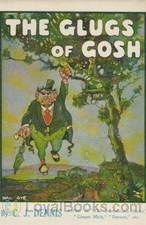 The Glugs of Gosh
The Glugs of Gosh
First published in 1917, The Glugs of Gosh satirizes Australian life at the start of the twentieth century – but the absurdities it catalogs seem just as prevalent at the start of the twenty-first. The foolishness of kings, the arrogance of the elite, the gullibility of crowds, the pride of the self-righteous, the unthinking following of tradition – all find themselves the targets of C. J. Dennis’ biting wit. | |
By: C. M. (Charles Molloy) Westmacott (1788?-1868) | |
|---|---|
 The English Spy An Original Work Characteristic, Satirical, And Humorous. Comprising Scenes And Sketches In Every Rank Of Society, Being Portraits Drawn From The Life
The English Spy An Original Work Characteristic, Satirical, And Humorous. Comprising Scenes And Sketches In Every Rank Of Society, Being Portraits Drawn From The Life
| |
By: Charles Dickens (1812-1870) | |
|---|---|
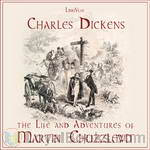 The Life and Adventures of Martin Chuzzlewit
The Life and Adventures of Martin Chuzzlewit
Dickens thought it was “in a hundred points, immeasurably the best” of his stories. Yet it was also one of his greatest flops. Compared to his other novels, The Life and Adventures of Martin Chuzzlewit was a dismal failure in terms of sales and the main reason for Dickens falling out with his long term publisher Chapman & Hall. They invoked a penalty clause and demanded that he pay back a portion of the advance which he refused. Martin Chuzzlewit was also dimly received in Dickens friendly America... | |
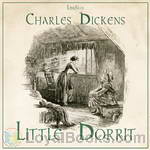 Little Dorrit
Little Dorrit
Originally published in monthly installments between 1855 and 1857, the novel focuses on the various forms of imprisonment, both physical and psychological, while also concentrating on dysfunctional family ties. Accordingly, Dickens avidly criticizes the social deficiencies of the time including injustice, social hypocrisy, the austerity of the Marshalsea debtors’ prison, and bureaucratic inefficiency. The novel kicks off with the introduction of William Dorrit, the oldest prisoner in the Marshalsea prison, who is also referred to as The Father of the Marshalsea... | |
By: Charles Macklin (1699-1797) | |
|---|---|
 Will and No Will or a Bone for the Lawyers
Will and No Will or a Bone for the Lawyers
This "Afterpiece" - a short play to follow a main production - was first produced in 1746. It was based on Regnard's five-act comedy le Legetaire Universel (1707), which is itself a composite of Italian comedy with echoes of Molière, moving from scene to scene with little effort at logical consistency or structure but treating each scene autonomously for its own comic value. The rather long Prologue to A WILL AND NO WILL (11 pages of manuscript) makes fun of the convention of the eighteenth century prologues by the familiar dodge of having actors chatting as though they were in the Pit waiting for the actors in the preceding main play to dress for the afterpiece. | |
By: Charlotte Lennox (1730-1804) | |
|---|---|
 The Female Quixote
The Female Quixote
The novel formally inverts Don Quixote: as the don mistakes himself for the knightly hero of a Romance, so Arabella mistakes herself for the maiden love of a Romance. While the don thinks it his duty to praise the platonically pure damsels he meets (such as the woman he loves), so Arabella believes it is in her power to kill with a look and it is the duty of her lovers to suffer ordeals on her behalf. | |
By: Christopher Morley (1890-1957) | |
|---|---|
 In the Sweet Dry and Dry
In the Sweet Dry and Dry
Written just before Prohibition to entail the possible troubles that might happen en route. Both sides of the argument, or battle as the case may be, strike out with various over-top methods like legislating most fruits and vegetables as unsafe or intoxicating large groups with breathable alcohol. | |
By: Clarence Day, Jr. (1874-1935) | |
|---|---|
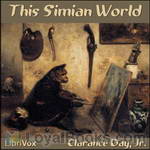 This Simian World
This Simian World
Clarence Day, Jr., best known for his work Life with Father, presents a satirical speculation on how the world might be different if we apes had not risen to prominence, but rather one of the other species had become dominant in our place. | |
By: Decimus Iunius Iuvenalis (-2nd Cent.) | |
|---|---|
 Satires
Satires
Decimus Iunius Iuvenalis, known in English as Juvenal, was a Roman poet active in the late 1st and early 2nd century AD. The details of the author's life are unclear, although references within his text to known persons of the late 1st and early 2nd centuries AD fix his terminus post quem (earliest date of composition). The Satires are a collection of satirical poems by Juvenal written in the late 1st and early 2nd centuries AD. Juvenal is credited with sixteen known poems divided among five books; all are in the Roman genre of satire, which, at its most basic in the time of the author, comprised a wide-ranging discussion of society and social mores in dactylic hexameter... | |
By: Denis Diderot (1713-1784) | |
|---|---|
 Rameau's Nephew
Rameau's Nephew
Rameau's Nephew, or the Second Satire (French: Le Neveu de Rameau ou La Satire seconde) is an imaginary philosophical conversation written by Denis Diderot, probably between 1761 and 1772. It was first published in 1805 in German translation by Goethe, but the French manuscript used has subsequently disappeared. The German version was translated back into French by de Saur and Saint-Genies and published in 1821. The first published version based on French manuscript appeared in 1823 in the Brière edition of Diderot's works... | |
By: Desiderius Erasmus (1466/69-1536) | |
|---|---|
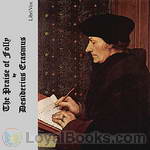 The Praise of Folly
The Praise of Folly
The Praise of Folly (Greek title: Morias Enkomion (Μωρίας Εγκώμιον), Latin: Stultitiae Laus, sometimes translated as In Praise of Folly, Dutch title: Lof der Zotheid) is a satirical essay written in 1509 by Desiderius Erasmus of Rotterdam (1466/69-1536). It is considered one of the most influential works of literature in Western civilization and one of the catalysts of the Protestant Reformation.It starts off with a satirical learned encomium after the manner of the Greek satirist... | |
By: E. F. Benson (1867-1940) | |
|---|---|
 Relentless City
Relentless City
A satiric novel of manners written in Benson's classic style of gently poking fun at class structures and the people who fill them. This time he includes New York, London, and the railways of the English countryside. - Summary by Beeswaxcandle | |
By: Eden Phillpotts (1862-1960) | |
|---|---|
 Deal With The Devil
Deal With The Devil
A Deal with the Devil is a classic tale with a humorous twist. We find that on the night preceeding his 100th birthday Grandpapa, a cantankerous yet loveable sort, has made a deal with the devil, which his granddaughter, in part, will pay. - Summary by Angelique G. Campbell | |
By: Edmond About (1828-1885) | |
|---|---|
 Notary's Nose
Notary's Nose
Ironic and Satirical: A successful Parisian notary, Alfred L’Ambert, is smitten with a fourteen-year-old ballet dancer. After a quarrel, his Turkish rival challenges him to a duel during which the notary gets his nose cut off. Thereupon, a surgeon is called for a grafting. The donor is a simple man from the Auvergne with whom the notary is forced to spend thirty days, his nose being literally glued to the arm of the man. But even after this term, his bad fortune doesn’t come to an end... - Summary by Didier Le Nez d’un notaire - The Notary's Nose in French La Nariz de un notario - The Notary's Nose in Spanish | |
By: Edward Stirling (1809-1894) | |
|---|---|
 Nicholas Nickleby: A Farce in 2 Acts
Nicholas Nickleby: A Farce in 2 Acts
This stage adaptation of Dickens’ novel debuted in November of 1838 at the Adelphi Theater in London. Only eight installments of the story had been published at that time, therefore several characters such as the theatrical Crummles family who play an important part in the latter half of the text do not appear in this work. The ending of this adaptation is also wholly a creation of playwright Edward Stirling, not novelist Dickens. Charles Dickens attended a performance of the play which starred comedienne Mary Keeley in the role of Smike... | |
By: Edward Jenkins (1838-1910) | |
|---|---|
 Ginx's Baby: his birth and other misfortunes; a satire
Ginx's Baby: his birth and other misfortunes; a satire
| |
By: Edwin Abbott Abbott (1838-1926) | |
|---|---|
 Flatland: A Romance of Many Dimensions
Flatland: A Romance of Many Dimensions
If you've never heard the term “Mathematical Fiction” before, Edwin Abbott Abbott's 1884 novella, Flatland can certainly enlighten you! Flatland: A Romance of Many Dimensions was published in 1884 and since then, it has been discovered and re-discovered by succeeding generations who have been delighted by its unique view of society and people. The plot opens with a description of the fictional Flatland. The narrator calls himself “Square” and asks readers to “Imagine a vast sheet of paper on which straight Lines, Squares, Triangles, Pentagons, Hexagons and other figures, instead of remaining fixed in their places, move freely about... | |
By: Edwin F. Benson (1867-1940) | |
|---|---|
 Miss Mapp
Miss Mapp
E. F. Benson’s Mapp and Lucia series, consists of six novels and three short stories. The novels are: Queen Lucia, Lucia in London, Miss Mapp (including the short story The Male Impersonator), Mapp and Lucia, Lucia’s Progress (published as The Worshipful Lucia in the U.S.) and Trouble for Lucia. Most of these works are set in the fictional village of “Tilling”, which is based on the village of Rye, Sussex, England. “Mallards”, the house with the garden room inhabited by Miss Mapp, and later by Lucia, is based on Lamb House, Benson’s own home in Rye. Earlier, the house was the Sussex home of writer Henry James. | |
By: Elizabeth Griffith (1727-1793) | |
|---|---|
 History Of Lady Barton
History Of Lady Barton
This is the story of the three Cleveland siblings: Fanny, the innocent yet very sympathetic sister; Louisa, the strong willed sister whose miserable marriage to Sir William is the center of the novel; and Sir George who tries to get over the loss of his lover by touring the world. Louisa is not an amoral woman, she is beautiful and very lively, values which 18th century society promotes, yet she suffers only affliction from her "respectable" college educated husband. In the main plot, and all the sub plots , the book tests many prominent values of the time and brings to light their negative implications... | |
By: F. Anstey (1856-1934) | |
|---|---|
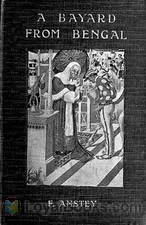 Bayard from Bengal
Bayard from Bengal
The estimable gentleman, Chunder Bindabun Bhosh, ESQ., B.A., travels from his native India to England, with his impeccable English and manners, which immediately mark him as a foreigner, and embarks on an enviable program of escapades. These stories are the product of the fertile imagination of Hurry Bungsho Jabberjee, B.A., a nom de plume for the humorist F. Anstey, which is a further nom de plume for Thomas Anstey Guthrie. Whether rescuing a nubile maiden from a charging bull or falling in love with said nubile maiden, Mr. Bosh, B. A. cannot help but perform with the requisite humor to engage our attention. | |